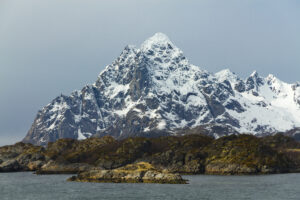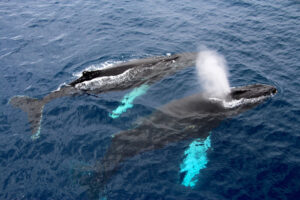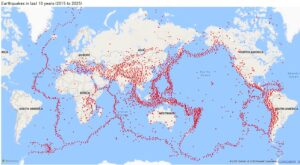In 2009, two men drifted helplessly inside an icebox for 25 days. Miraculously, they survived a disaster that killed their 18 crewmates.
The two Burmese men had been working on a commercial fishing boat. The day had started innocuously enough but turned into a nightmare when the weather changed. Rough seas splintered their 9m wooden vessel. The boat sank, and the crew was forced into the ocean.
The two men found a 1.5m square icebox that usually stored fish. Seeking refuge, they clambered inside. The rest of the crew (mostly Thai nationals) had no flotation devices.
“We saw a Thai man floating past us but we couldn’t reach him to help,” one survivor told the rescue team.
There had been no emergency beacons or life rafts on the fishing boat. The men were now at the mercy of the ocean, praying for rescue.

The two men in their twenties were lucky to survive. Photo: Sydney Morning Herald
“We drifted for hundreds of miles, and although we think some ships saw us, they didn’t come to help,” said one of the survivors. “Even when the fishing boat we were on sent out distress signals, no one responded. When the boat sank we had to grab what we could or we would drown.”
Drank rainwater
For 25 days, they survived on rainwater that pooled at the bottom of their icebox and ate chunks of fish that had been left inside. Wind and waves threatened to capsize them as they drifted.
In a stroke of luck, an Australian Coast Guard aircraft spotted the icebox during a routine flight. The shipwrecked men removed their shirts and waved furiously to the crew above. The Coast Guard then radioed a rescue helicopter to retrieve them.
“They were ecstatic to see us,” reported the helicopter pilot.

Illegal boats often fish the Torres Strait between Australia and Papua New Guinea. The Australian Coast Guard patrols regularly.
The men (aged 22 and 25) thought they had been approximately 300km off the coast of Australia when their ordeal started. They may have drifted hundreds of kilometers before being winched to safety 110km northwest of Horn Island.
Onboard the helicopter, the parched fishermen downed almost two liters of water each. They were lucky to be alive. All 18 of their crewmates were presumed dead and no further searches were conducted.
“The information [the men] provided to us was that they witnessed other crew members in the water, none of whom had a flotation device, so we’ve done an assessment and we don’t believe anybody would be able to survive 25 days actually in the water,” said one of the rescuers.
The survivors were hungry and dehydrated but otherwise in good health. They were released from the hospital the following day.
The Torres Strait between Australia and Papua New Guinea is fished both legally and illegally. It is unknown if the crew was permitted to fish when their boat sank.






